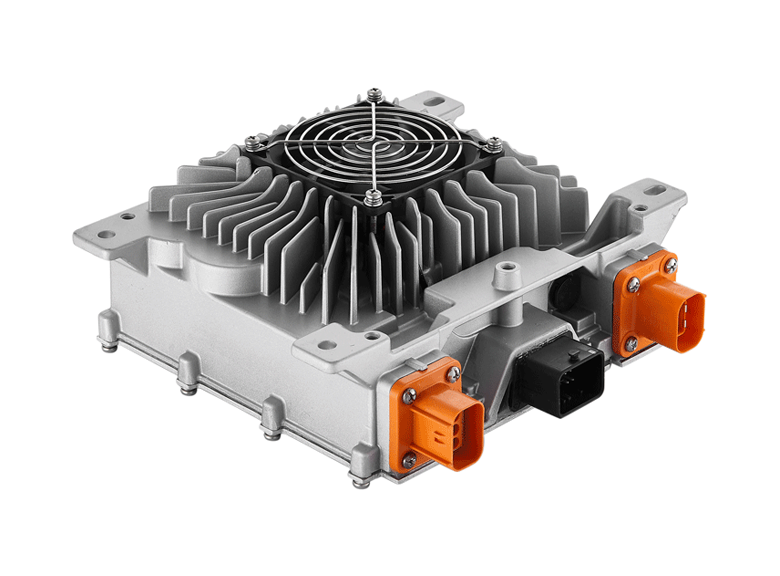The electric vehicle (EV) revolution is in full swing, and as technology continues to advance, the components that power these vehicles are evolving at a rapid pace. Among these components, the on-board charger (OBC) plays a crucial role in ensuring efficient charging and enhancing the overall EV experience. In this blog, we'll explore the latest developments in on-board chargers and how they are shaping the future of electric transportation.
The Basics of On-Board Chargers
An OBC is an essential component in every electric vehicle. Its primary function is to convert alternating current (AC) from an external power source, such as a charging station or wall outlet, into direct current (DC) to charge the vehicle's battery. The efficiency, power output, and size of the OBC have a significant impact on the overall charging experience.
Let's dive into the latest advancements in on-board charger technology:
Higher Power Output: One of the key advancements in OBC technology is the ability to handle higher power levels. As charging infrastructure improves and faster charging stations become more common, OBCs have evolved to match the higher power levels. This allows for faster charging times and reduces the time it takes to replenish an EV's battery.
Bidirectional Charging: Many modern on-board chargers support bidirectional charging, allowing the vehicle to not only charge from the grid but also feed power back into the grid when necessary. This bi-directional functionality can make EVs a valuable resource for grid stabilization, especially during peak demand periods.

Improved Efficiency: OBCs have become more energy-efficient, reducing the losses during the conversion from AC to DC. This means that less energy is wasted during the charging process, resulting in a more eco-friendly and cost-effective operation.
Smart Charging: The integration of advanced software and connectivity features has made OBCs smarter. They can communicate with the grid and adapt their charging rates based on factors like energy demand, cost, and user preferences. This allows for optimal charging efficiency and user convenience.
Compact Design: OBCs are becoming smaller and more compact, freeing up space within the EV for other components or increasing passenger and cargo space. This size reduction is achieved without compromising performance, thanks to advancements in power electronics.
Advanced Thermal Management: To ensure the OBC operates optimally and extends its lifespan, advanced thermal management systems have been developed. These systems actively control the temperature of the OBC, preventing overheating and maintaining efficiency.
Universal Compatibility: Many modern OBCs are designed to be compatible with a wide range of charging standards and connectors, making it easier for EV owners to charge their vehicles at various charging stations.
Wireless Charging: Wireless charging technology for EVs is also advancing rapidly. Some OBCs are now equipped with wireless charging capabilities, allowing users to charge their EVs without physically plugging them in, further simplifying the charging process.
The development of on-board chargers is a critical component in the continued growth and adoption of electric vehicles. With higher power outputs, bidirectional charging capabilities, improved efficiency, and smart features, OBCs are becoming more powerful, versatile, and user-friendly. As the electric vehicle market continues to expand, we can expect further innovations in on-board charger technology, ultimately making EVs even more convenient, efficient, and environmentally friendly.
With these advancements in OBC technology, the future of electric vehicles looks promising, and we can expect even more exciting developments in the coming years. As infrastructure improves and OBCs become even more advanced, the transition to electric transportation will become even smoother, and the environmental benefits of EVs will continue to grow.
Next:The Latest Developments in Forklift Charger
Previous:Hybrid Solar Inverter for Commercial Solar Systems
Contact Person: Miss. Kiki
| WhatsApp : | +8617763224709 |
|---|---|
| Skype : | +8617763224709 |
| WeChat : | +8617763224709 |
| Email : | kiki@lifepo4-battery.com |